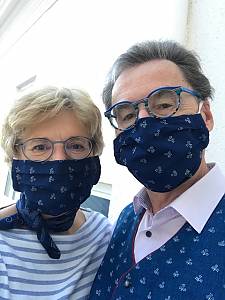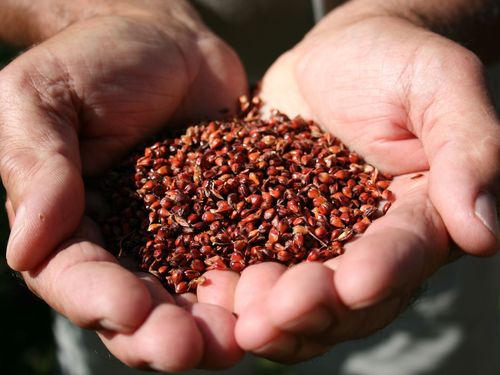Intangible cultural heritage in exceptional times
Living heritage around the world is repeatedly affected by emergencies, including conflicts and disasters caused by natural and man-made hazards. On the one hand, emergencies directly threaten the transmission and survivability of intangible cultural heritage; on the other hand, intangible cultural heritage is a valuable resource for communities to build resilience and help communities prepare for, respond to, and cope with emergencies. People therefore find creative ways to live and pass on their important cultural heritage even in exceptional situations, such as COVID-19.
COVID19 and the Virtual Salons
COVID-19 affected many of the practitioners of intangible cultural heritage in Austria. Events were canceled, people could no longer meet and pass on and practice their living heritage. Therefore, after renewed closure measures, the Austrian Commission for UNESCO took to the virtual world and launched the "VIRTUAL SALON Intangible Cultural Heritage" to promote exchange and dialogue between and with intangible cultural heritage practitioners in Austria. Representatives of the elements registered in the National Inventory of Intangible Cultural Heritage were invited to an online meeting and almost 50 people participated in the launch event of this new format. Participants were able to inspire each other and share their experiences of dealing with ICH in exceptional situations. Some of them presented the following:
Färbermuseum Gutau (blue printing museum in Gutau).
The Färbermuseum Gutau, an important traditional bearer of the element of blue printing had to close its doors and the traditional international dyer's market in the area was cancelled for 2020. After the Austrian government recommended the wearing of face masks, the Dyer's Museum started to produce masks from local material dyed with indigo. The masks were distributed in the region in exchange for donations to the museum. Shortly after, a regional bank (VKB-BANK) ordered masks for more than 800 employees*. This shows a successful cooperation between a regional institution and traditional crafts. Actions like this promote solidarity in times of crisis.
Local healing knowledge in Pinzgau region
During the Covid 19 pandemic, people were looking for (new) ways to protect themselves from the coronavirus: Besides hand washing, are there herbs or tinctures that are beneficial to health and can strengthen the immune system? If disinfectants are suddenly in short supply, what (natural) alternatives are there? In Pinzgau, knowledge about the use of plants and herbs in traditional medicine has gained massive public interest. People have learned (again) that natural herbs can support the body's immune system. The pandemic has thus raised awareness of the importance of local healing knowledge, which is still collected and used today in the Pinzgau region of Austria. However, since most of the healing practitioners are located on the border with Germany, the exchange and sharing is currently severely disrupted.
Output
The first edition of the Salon focused on the Covid 19 pandemic and its impact on intangible cultural heritage in Austria. Actors, including tradition bearers, NGOs and experts, shared their efforts, concerns and initiatives. The virtual platform provided a space for discussing individual cases and sharing stories, new ideas and inspiring projects initiated after the closure. Based on these examples and experiences, UNESCO has published a collection of Intangible Cultural Heritage in Times of Crisis, which includes the two examples mentioned above.



![[Translate to EN:] © J. Ségur/ZED, with the permission of UNESCO](/fileadmin/_processed_/d/b/csm_Convention-2003-IKE_0832a6a47d.jpg)
![[Translate to EN:] © ÖUK](/fileadmin/_processed_/3/9/csm_P1011318_7eac86402f.jpg)

![[Translate to EN:] © Weitblickfilm](/fileadmin/_processed_/9/8/csm_Workshop_17_2dee1e1fd8.jpg)